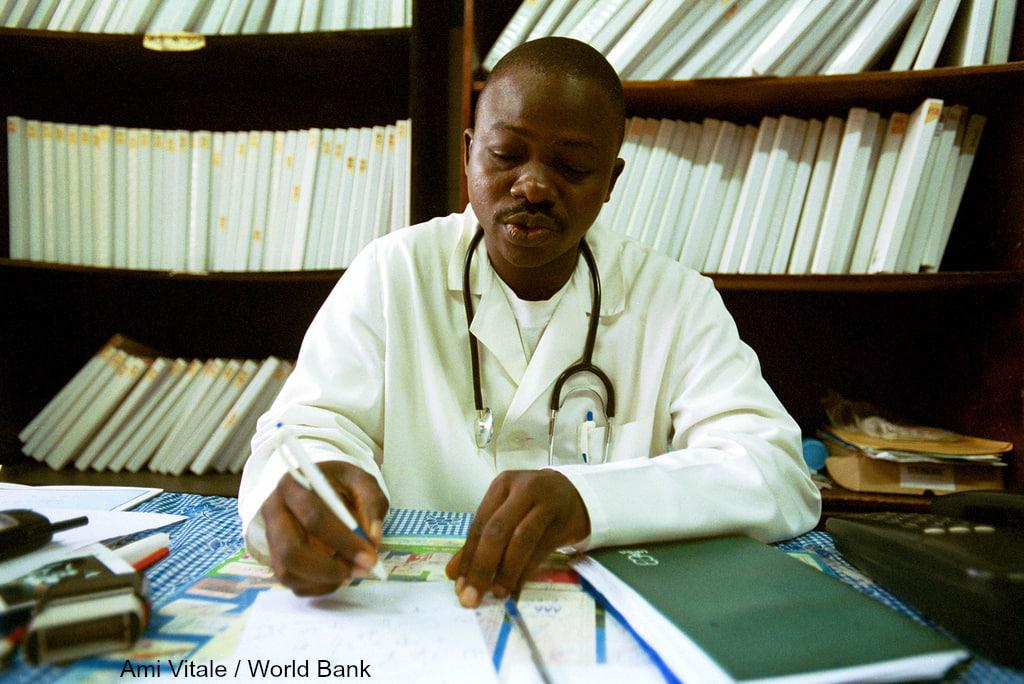Missing babies, missing booster shots


At Lusikisiki’s St Elizabeth Gateway Clinic about 120 kms outside Mthatha two nurses are responsible for vaccinating about 60 babies daily, according to health workers. Mothers come from far away locations without their own clinics through terrain that is often difficult to cross even for the mobile clinics that venture there once a month weather permitting.
According to local health workers, while many mothers bring babies for their first measles shot at nine months, many babies receive their second booster shot of the vaccine later.
“Most of them do not miss the vaccine especially for babies younger than nine months,” said one health worker who wished to remain anonymous. “The problem we experience is with the 18-months-old babies (because) their mothers do not bring them for measles vaccination.”
“Their excuses differ, some mothers say they had no transport fare whereas others say they were not aware of the next appointment date,” she added.
Nokhaya Mjokovane is a mother of five who travels to the clinic from an outlying area that is serviced once a month by a mobile clinic. During the rainy season, roads can become impassable and when the mobile clinic does arrive, it is sometimes with a limited supply of medicine and vaccines, she said.
Traveling to St Elizabeth’s costs her R44 for the round trip over bad roads.
“There is no clinic in my village,” says. “The mobile clinic that usually comes once a month a the village arrives during the day with a limited number of measles vaccines and other medication.”
“Going to clinic for a measles vaccine, costs me R44 return… it is stressful because I have to catch a van and the roads are bad.
“If the mobile clinic could come twice a month that would be better because it will cut transport costs that I incur when going to the clinic,” she told OurHealth.
Supply chain savvy
As part of a national investigation, Health-e conducted weekly monitoring at five clinics in Gauteng, the Eastern Cape and Limpopo during February.
During this time, there were stock-outs of polio, rotavirus, tetanus and hepatitis B in all four clinics outside Gauteng. Stock-outs lasted anywhere from one to four weeks. Six of the 11 clinics visited had storage problems.
St Elizabeth’s used to be a sub-depot providing medicines to eleven clinics in the Qaukeni local service area. This means that medicines would travel from the larger medicine depot in Mthatha to St Elizabeth’s before being sent to smaller clinics. In an effort to address stock-outs, these clinics have now been provided with ordering codes that allow them to procure directly from the Mthatha depot. However nurses say medicine packers in Mthatha need better education on how to fill some orders.
Many vaccines, like the measles vaccine, also need to be reconstituted – or mixed with another liquid called “diluents” – before being administered. However St Elizabeth nurses report that packers at the Mthatha medicines depot often do not pair the right reconstituting liquid with the right vaccine.
“Both diluents and measles vaccines are not stored at the same place at Mthatha depot,” explained one nurse, who added that this means that packers must first pack vaccines and then be able to identify the right liquid housed in another part of the warehouse to send with immunisations.
According to health workers, this means they must place special orders for the right diluents after vaccines arrive.
“Orientation on diluents and vaccines is urgently needed for packers so that we do not experience such a problem that can be avoided before the damage is done,” she added.
Read more from Health-e’s investigation into vaccination in South Africa “Shots in the dark?” as part of the African Story Challenge:
- Shots in the dark? Vaccines in South Africa
- Shots in the dark? Snapshots of Health-e investigation
- Film: Shots in the Dark? A look at vaccines in the Eastern Cape
- Stock-outs, low awareness stymie immunisations
- Vaccinations are everyone’s business in Shoshanguve
- What is measles?
Author
Republish this article
This work is licensed under a Creative Commons Attribution-NoDerivatives 4.0 International License.
Unless otherwise noted, you can republish our articles for free under a Creative Commons license. Here’s what you need to know:
You have to credit Health-e News. In the byline, we prefer “Author Name, Publication.” At the top of the text of your story, include a line that reads: “This story was originally published by Health-e News.” You must link the word “Health-e News” to the original URL of the story.
You must include all of the links from our story, including our newsletter sign up link.
If you use canonical metadata, please use the Health-e News URL. For more information about canonical metadata, click here.
You can’t edit our material, except to reflect relative changes in time, location and editorial style. (For example, “yesterday” can be changed to “last week”)
You have no rights to sell, license, syndicate, or otherwise represent yourself as the authorized owner of our material to any third parties. This means that you cannot actively publish or submit our work for syndication to third party platforms or apps like Apple News or Google News. Health-e News understands that publishers cannot fully control when certain third parties automatically summarise or crawl content from publishers’ own sites.
You can’t republish our material wholesale, or automatically; you need to select stories to be republished individually.
If you share republished stories on social media, we’d appreciate being tagged in your posts. You can find us on Twitter @HealthENews, Instagram @healthenews, and Facebook Health-e News Service.
You can grab HTML code for our stories easily. Click on the Creative Commons logo on our stories. You’ll find it with the other share buttons.
If you have any other questions, contact info@health-e.org.za.
Missing babies, missing booster shots
by tandekahlongwane, Health-e News
March 12, 2014



